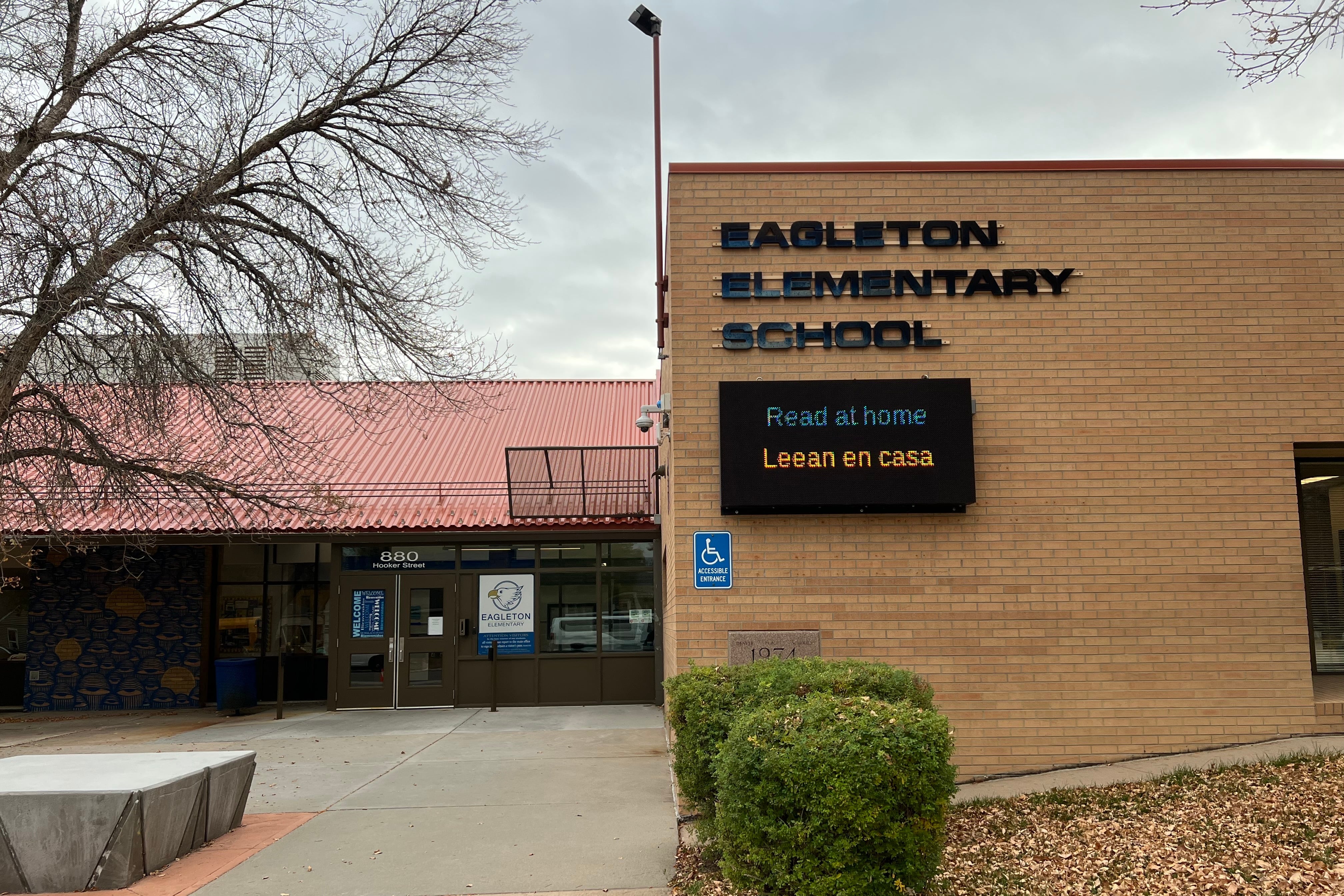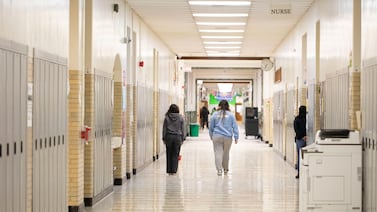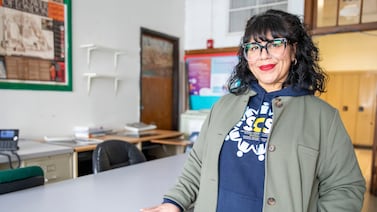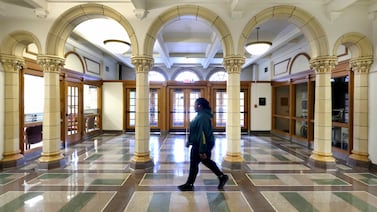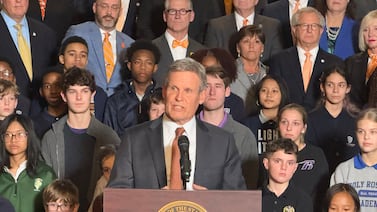Denver Superintendent Alex Marrero’s proposal to close 10 schools received a rocky reception from the school board Thursday, with some board members grilling him about a recommendation that has roiled school communities.
Three of the seven board members — Auon’tai Anderson, Michelle Quattlebaum, and Scott Esserman — said during Thursday’s meeting or in interviews afterward that they oppose the closures, which Marrero has said are necessary to address declining enrollment.
Two more — Scott Baldermann and Charmaine Lindsay — said they are undecided.
Board President Xóchitl “Sochi” Gaytán declined to say how she will vote. But she said she’s concerned some students, including English language learners, are not getting the robust services they deserve at the 10 schools because funding is short. Board member Carrie Olson was absent from Thursday’s meeting due to a family emergency.
Several board members suggested sending Marrero back to the drawing board by revoking the resolution that directed him to come up with a plan for consolidating schools in the first place. They said the process has felt rushed, top-down, and not transparent.
“There are a lot of unknowns that are not giving our families and community comfort in this process,” Quattlebaum said.
Marrero is billing the closures as consolidations because students and staff from the 10 schools would be reassigned to schools nearby. The school board is scheduled to vote on the package — all 10 closures or none at all — on Nov. 17.
In the nine days since the recommendation was announced, parents and family members at the 10 schools have gathered in meetings scheduled by principals to hear more and vent their concerns about a proposal that many say blindsided them.
At several of the meetings, the principals have stood with mid-level district administrators in cafeterias, facing rows of frustrated parents and grandparents, some with toddlers in tow. The meetings have been full of questions and short on answers.
Parents have wanted to know how big class sizes will be at the consolidated schools. But officials said that’s impossible to know until they see how many students show up next year.
Parents asked for assurances that the district won’t turn around and close the receiving schools in a year or two, disrupting their children’s education yet again. But officials couldn’t give it.
Families wanted to know how the district will provide transportation to the consolidated schools in the midst of a bus driver shortage. The district will do its best, officials said.
Above all, families wanted to know if they could save their schools from closure.
“Is this just a foregone conclusion and our elected officials are not persuadable?” asked Rick Levy, the father of a preschooler at Eagleton Elementary, one of the 10 schools recommended for closure, at a Thursday morning meeting in the school’s cafeteria.
“They absolutely want to hear from you,” said Dana Williams, an administrator who oversees a group of elementary schools, including Eagleton.
But no elected officials attended that meeting. School board members have attended some meetings at the 10 schools recommended for closure, but not all. There weren’t any board members at a 3:30 p.m. meeting at Columbian Elementary the day before, either.
In some cases, the meetings overlapped, making it impossible for board members to be in two places at once. In other cases, board members weren’t notified until an hour before.
At least two community organizations have called for more robust engagement.
EDUCATE Denver, a coalition of civic leaders, and Denver Families for Public Schools, a nonprofit that among other initiatives aims to increase participation in school board elections, separately called on the district to hold at least one meeting at each school that could close and at each school that might receive their students. The superintendent and the local board member should attend those meetings, both groups said.
Both groups also called for the board to hold an extended public comment session, and for the district to facilitate one-on-one meetings with families affected by the closures.
But thus far, the only opportunity for parents and community members to plead their case before all seven board members who will vote on the recommendation is a single public comment session scheduled for Nov. 14, three days before the vote.
Marrero defended the tight timeline Thursday. Slowing down the process would cause staff and students to flee from the schools recommended for closure, he said, further draining them of per-pupil funding. Consolidations work best when everyone can move to a new school together, he said. But some board members pushed back.
“When we have not had direct conversations with the impacted communities until we have come forward with the plan, that is district led, that is not community led,” Esserman said.
Families at Columbian and Eagleton agreed that the district isn’t providing enough opportunity for them to speak out. Parents are finding they don’t have much time to organize. At Columbian, parent Darcy Cornish Lovato handed out handwritten “Save our school” lawn signs. At Eagleton, Tara De La Fuente urged other parents to scan a QR code and sign a petition.
“One or two meetings at each school is not going to cover all the households,” said Arturo Orozco, the father of a fifth grader at Eagleton. Many parents, he said, have to work and can’t attend in-person meetings on a weekday morning or afternoon.
“This is more than just a school. This is a community,” Orozco said.
“Our community is going to hurt because of this.”
Melanie Asmar is a senior reporter for Chalkbeat Colorado, covering Denver Public Schools. Contact Melanie at masmar@chalkbeat.org.

